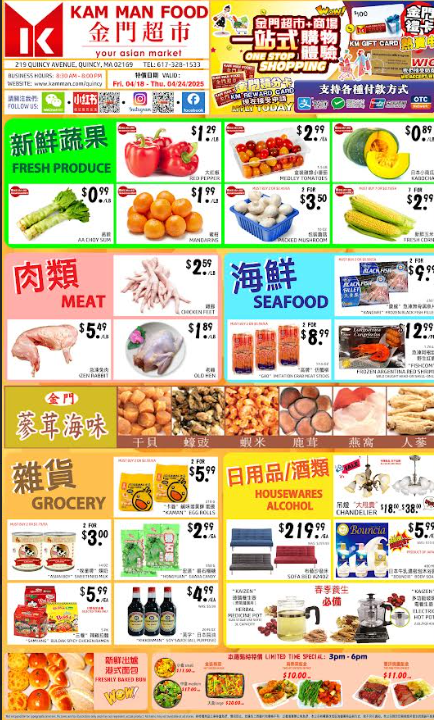中国将对美报复性关税税率提高至84%,誓言“战斗到底”

【中美创新时报2025 年 4 月 9 日编译讯】(记者温友平编译)中国周三再次誓言要在与美国不断升级的贸易战中“战斗到底”,并宣布将从周四起将美国商品的关税提高到 84%。美联社记者吴惠忠对此作了下述报道。
在美国总统特朗普将中国进口产品关税总额提高至104%后,北京也采取了一系列反制措施。
中国商务部在发布对美经贸白皮书时表示:“如果美方执意进一步升级经贸限制措施,中方有坚定的意志和充足的手段采取必要反制措施,坚决打赢这场战争。”
与许多其他国家一样,政府拒绝透露是否会与白宫进行谈判。
周五,中国宣布对所有美国进口商品征收34%的关税,并对稀土矿实施出口管制,并采取一系列其他措施,以回应特朗普的“解放日”关税政策。特朗普随后又对中国商品加征50%的关税,并称与中国的谈判已经终止。
到目前为止,中国似乎对谈判不感兴趣。外交部发言人林建周三表示:“如果美方真心希望通过对话谈判解决问题,就应该采取平等、尊重、互利的态度。”
该报称,美国尚未兑现其在特朗普第一任期内达成的第一阶段贸易协议中做出的承诺。例如,该报称,一项美国法律规定,除非TikTok被其中国母公司出售,否则将禁止其运营,这违反了双方均不会“强迫对方向本国公民转让技术”的承诺。
上周,在TikTok出售给美国用户的潜在交易被搁置后,特朗普签署了一项命令,允许其继续运营75天。字节跳动的代表致电白宫,表示在贸易和关税谈判能够顺利进行之前,中国将不再批准该交易。
该报还认为,考虑到服务贸易和美国公司在中国的分支机构,两国之间的经济交流“大致平衡”。
报告称,2023年中国对美国的服务贸易逆差为265.7亿美元,其中包括保险、银行和会计等行业。特朗普的关税旨在弥补与外国的贸易逆差,但这些逆差仅基于实物、有形商品的贸易计算。
中国商务部在声明中表示:“历史和事实证明,美方加征关税解决不了自身问题,反而会引发金融市场剧烈波动,推高美国通胀压力,削弱美国工业基础,加大美国经济衰退风险,最终只会适得其反。”
美联社研究员于冰和制片人刘铮在北京对本报道亦有贡献。
题图:4月8日,卡车排起长队,准备从中国东部江苏省南京市的一个集装箱码头出发。图片来源:美联社
附原英文报道:
China raises its retaliatory tariff on the US to 84% as it vows to ‘fight to the end’
By HUIZHONG WU The Associated Press,Updated April 9, 2025, 1 hour ago
Trucks line up to depart from a container terminal in Nanjing in east China’s Jiangsu province on April 8.Uncredited/Associated Press
BANGKOK (AP) — China again vowed to “fight to the end” Wednesday in an escalating trade war with the U.S. as it announced it would raise tariffs on American goods to 84% from Thursday.
Beijing also added an array of countermeasures after U.S. President Donald Trump raised the total tariff on imports from China to 104%.
“If the U.S. insists on further escalating its economic and trade restrictions, China has the firm will and abundant means to take necessary countermeasures and fight to the end,” the Ministry of Commerce wrote in a statement introducing its white paper on trade with the U.S.
The government declined to say whether it would negotiate with the White House, as many other countries have started doing.
On Friday, China announced a 34% tariff on all goods imported from the U.S, export controls on rare earths minerals, and a slew of other measures in response to Trump’s “Liberation Day” tariffs. Trump then added an additional 50% tariff on goods from China, saying negotiations with them were terminated.
So far, China has not appeared interested in bargaining. “If the U.S. truly wants to resolve issues through dialogue and negotiation, it should adopt an attitude of equality, respect and mutual benefit,” said Ministry of Foreign Affairs spokesman Lin Jian Wednesday.
The paper says that the U.S. has not honored the promises it made in the phase 1 trade deal concluded during Trump’s first term. As an example, it said that a U.S. law that would ban TikTok unless it is sold by its Chinese parent company violates a promise that neither would “pressure the other party to transfer technology to its own individuals.”
Trump signed an order to keep TikTok running for another 75 days last week after a potential deal to sell the app to American owners was put on ice. ByteDance representatives called the White House to indicate that China would no longer approve the deal until there could be negotiations about trade and tariffs.
The paper also argued that taking into account trade in services and U.S. companies’ domestic Chinese branches, economic exchange between the two countries is “roughly in balance.”
It says that China had a trade in services deficit with the U.S. of $26.57 billion in 2023, which is composed of industries like insurance, banking and accounting. Trump’s tariffs were designed to close trade deficits with foreign countries, but those were calculated only based on trades in physical, tangible goods.
“History and facts have proven that the United States’ increase in tariffs will not solve its own problems,” said the statement from the Chinese commerce ministry. “Instead, it will trigger sharp fluctuations in financial markets, push up U.S. inflation pressure, weaken the U.S. industrial base and increase the risk of a U.S. economic recession, which will ultimately only backfire on itself.
AP researcher Yu Bing and producer Liu Zheng contributed to this report from Beijing.

